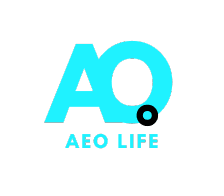Helpful Blogs
Why Content Is King in SEO: A Beginner’s Guide

“Content is King” is a remark that has been around for SEO specialists for a long time and continues to be used. But what does it mean, and why is content relevant for SEO success?
Content can be referred to as data on your website, including words, images, animations, videos, infographics, and other forms. However, for SEO, the content needs to be rich in quality and designed to serve the target audience’s needs. Effective SEO revolves around high-quality content. This blog will showcase how content creation improves SEO results.
To Phrase It Differently, What Does “Content is King” Mean in SEO?
Essentially, the phrase “Content is King” advocates for the necessity of creating strong foundational content within any SEO strategy. Google aims to provide the best possible answers to users’ queries, and to achieve this, your website needs to be content-rich and valuable.
Content is one of the many aspects of SEO. Without content, even the best SEO strategies will be ineffective. It’s the content that tells Google if your website is reliable, helpful, and valuable enough to be ranked for various queries. Search engines evaluate each piece of content to determine its relevance and quality.
The Reasons Why SEO Content is Crucial
1. Content Assists Search Engines in Understanding Your Site
A website’s content determines what it’s about and how relevant it is to a particular search query. Search engines use content to determine if a site is of high quality and focused on specific topics.
Here’s how content supports SEO:
- SEO Keywords: By incorporating relevant keywords in your article, search engines connect your content to specific queries. The more relevant connections made, the better.
- Topic Relevance: Google evaluates the data on your website to determine its relevance to the topics people are searching for. Websites with quality content or informative websites tend to rank higher on Google.
- User Experience: Out of all the content Google indexes, only a few sites answer the user’s query effectively. Those providing clear, helpful answers get rewarded with a higher ranking.
2. High-Quality Content Fully Engages and Retains Users
Content doesn’t just attract users to your website; it also retains them. High-quality content increases the likelihood that visitors will stay on your site longer, visit more pages, and take meaningful actions like making a purchase or signing up for a newsletter.
Users are more likely to:
- Interact with your brand
- Share your content on social media
- Spend more time on your site
When users spend more time on your website, search engines interpret this as a positive user experience. This can contribute to improved rankings over time.
3. Content Generates Organic Traffic
Content is essential for generating organic traffic—visitors who come to your website through search engines without the need for paid ads. The more valuable, well-optimized content you produce, the higher the chances of ranking for relevant keywords.
Organic traffic is crucial for long-term SEO success, as it:
- Increases brand visibility
- Builds domain authority and credibility
- Drives higher-quality leads and conversions
The more relevant and useful your content is, the more likely search engines will rank it, leading to an increase in organic traffic.
4. Content Headlines Attract Attention and Backlinks
Backlinks are a key component of SEO, and content plays a major role in acquiring them. Great content is often linked to by other websites. Backlinks from reputable sites add trust and authority to your content, boosting its SEO performance.
Here’s how content helps with backlink acquisition:
- Original Case Studies: Publishing original research can attract backlinks from other websites that find your work valuable.
- In-Depth Guides: Detailed guides are often linked to because they provide valuable information on a topic.
- Guest Posts: Writing guest posts for authoritative sites allows you to earn backlinks to your website.
5. It’s Content That Drives Conversions
Content doesn’t just improve rankings—it also helps drive conversions. Whether it’s through compelling calls to action, persuasive copy, or engaging product descriptions, great content is designed to convert visitors into customers.
When your content speaks directly to users’ needs and provides valuable information, they are more likely to take action, whether that’s purchasing a product, filling out a form, or subscribing to your newsletter.
How to Create SEO-Friendly Content
Now that we’ve explored why content is essential for SEO, let’s discuss how to create content that’s optimized for search engines.
1. Perform Keyword Research
Before creating content, keyword research is essential. Identify the keywords your audience is searching for and incorporate them naturally into your content. Tools like Google Keyword Planner, SEMrush, and Ahrefs can help you find high-volume, relevant keywords.
2. Focus on Your Audience
While SEO is about optimizing for search engines, remember that your primary audience is human. Craft content that meets their needs, solves their problems, and answers their questions. Keep in mind:
- Engagement: Invite your readers to interact with your content through comments or sharing.
- Readability: Break up content with headings, bullet points, and short paragraphs to make it easy to read and digest.
3. Optimize On-Page Elements
Ensure your content is optimized for search engines by paying attention to on-page SEO elements:
- Title Tags: Include your primary keyword in the title tag.
- Meta Descriptions: Write compelling meta descriptions that include your target keyword and entice users to click.
- Headings: Use header tags (H1, H2, etc.) to structure your content and improve readability.
- Image Optimization: Use descriptive alt text for images to help search engines understand their relevance.
Conclusion: Content is Key to SEO Success
The phrase “Content is King” remains a central truth in SEO. Great content is the cornerstone of every successful SEO strategy. By consistently creating high-quality, user-focused content, you increase your chances of ranking higher, attracting organic traffic, and building authority in your industry.
Remember, SEO is not just about technical optimization—it’s about providing valuable content that answers user queries and engages your audience. Focus on creating content that serves your audience’s needs, and you’ll see the rewards of improved rankings and increased traffic.
